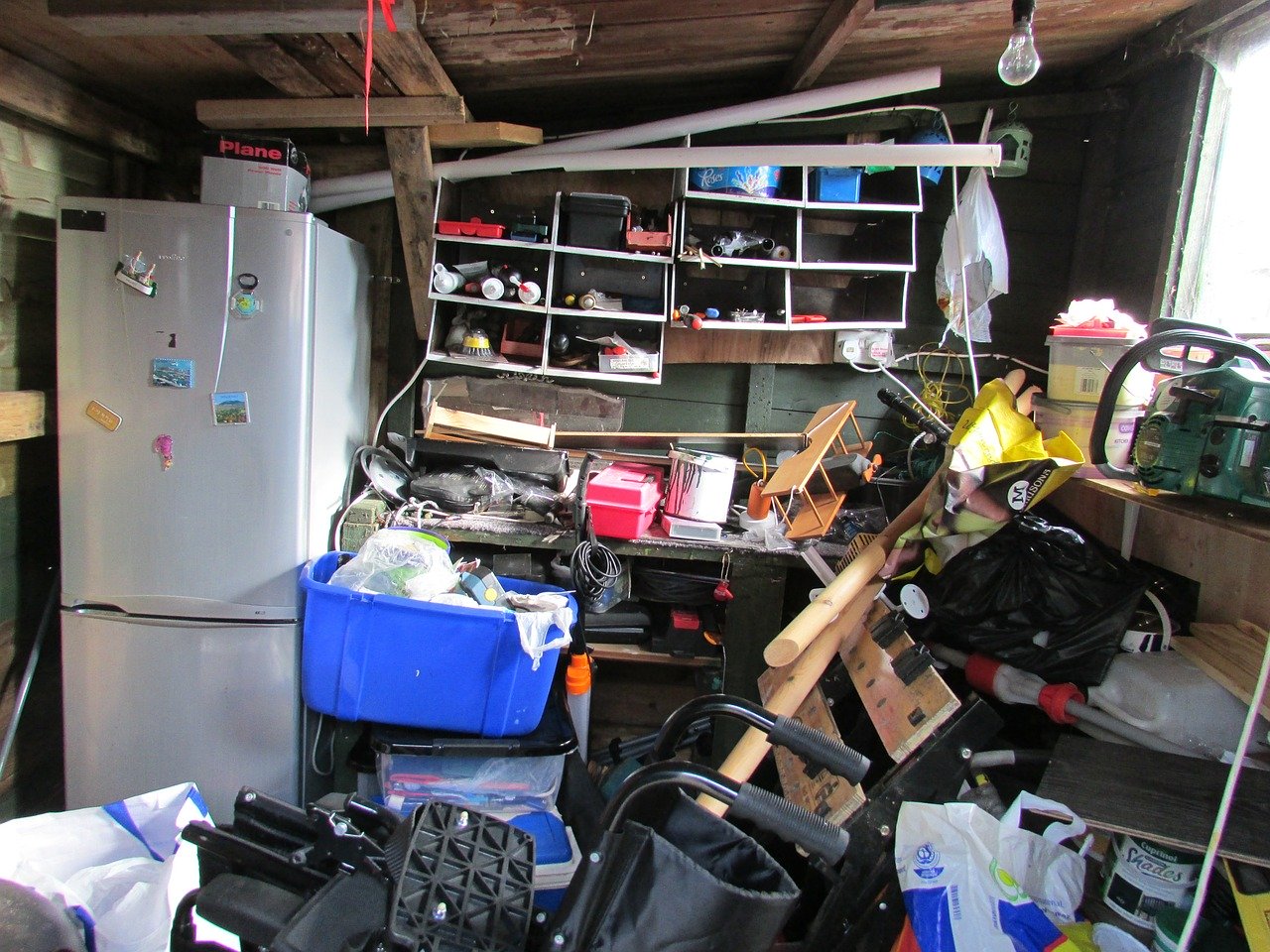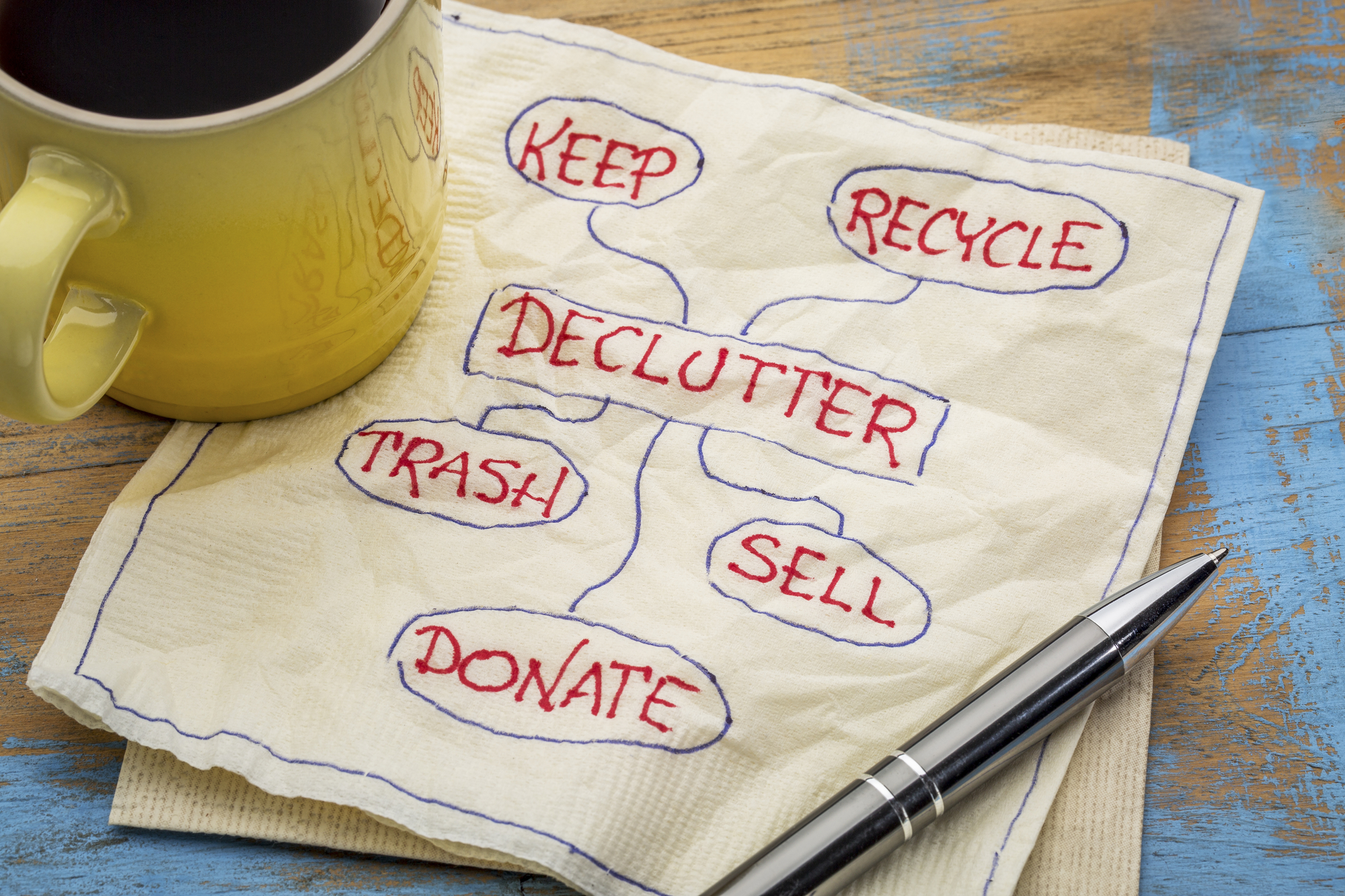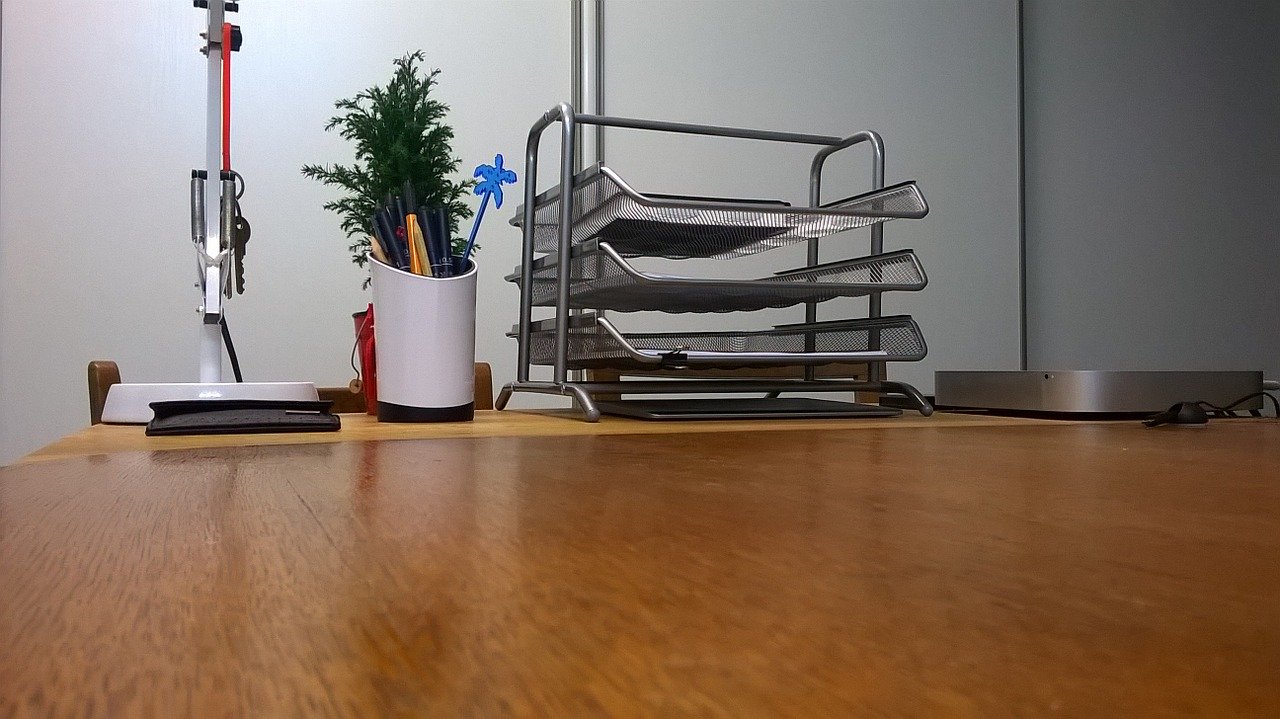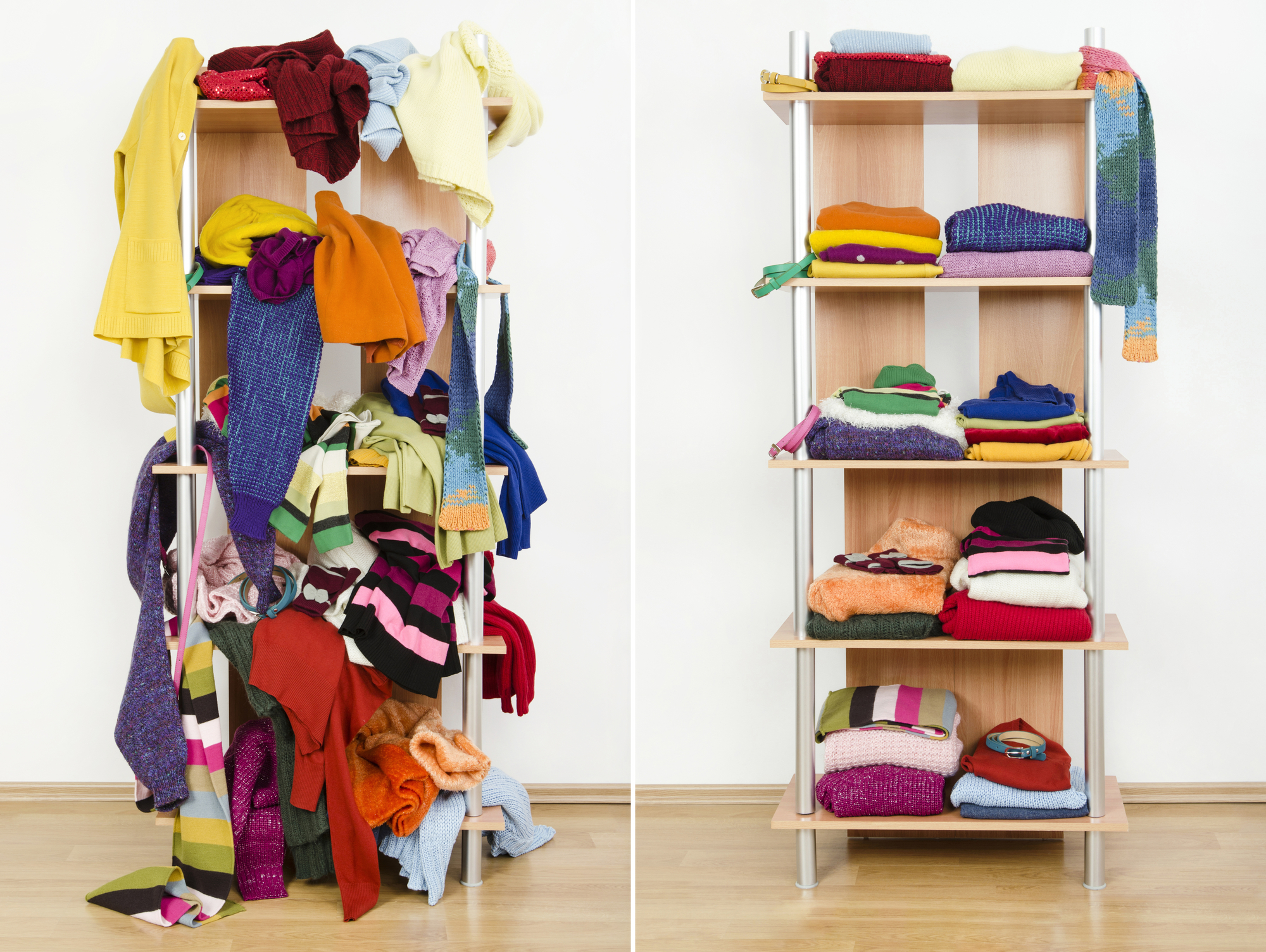A cluttered home can cause stress and anxiety, lower your productivity, blunt your creative instincts and make things so difficult to find that you end up re-buying items that you’re sure you already own!
It can also make your home difficult to clean, and an unclean home isn’t a healthy environment for your family, particularly now that the cleanliness of our homes is an important factor in reducing the risk of transmission of the novel coronavirus.
And even while certain restrictions are being lifted, many families will still be spending more time than ever in their homes, making it more important than ever that their living environments can be enjoyed.
With that in mind, we’ve pulled together some expert tips that will help you declutter, allowing you to clean effectively and begin to enjoy your home again.
1. Take it one room at a time
The hardest part of decluttering can be getting started. If you feel overwhelmed by the task at hand, start small and you’ll gradually build the confidence to tackle bigger problems.
Focus on one room at a time and set a time limit – 15 minutes is a good compromise. If you feel happy to continue once the 15 minutes are up then go for it, but by setting a time limit you’re making it easier to confront the task in the first place.
Deal with the rooms with the least problems to begin with. Once they get ticked off your to-do list you’ll feel like you’re making real progress and you’ll be learning some decluttering lessons on the way, preparing you for the real challenges elsewhere in your home.

2. Sort your stuff using the three box method
Find yourself a box or basket for each of these outcomes:
- Keep
- Throw out/recycle/donate/sell
- Place in storage
Depending how much clutter you have, you may find you need a box each for items you’re throwing out, recycling, donating and selling – perhaps we’ll have to call this the six box method!
Bring these boxes into the room you’re working on and tackle visible clutter first, before opening cupboard doors and dealing with the clutter you’ve hidden away.
Remember: shoving something in a cupboard and closing the door isn’t decluttering, it’s just saving a problem for later. These items are just taking up valuable storage space that could be used for things you really do want to keep.
Bearing in mind tip #1, take it one cupboard at a time, and don’t start something you know you can’t finish. It can be counterproductive to tear apart a room if you’re not sure when you’ll be able to put it back together again.

3. Don’t wait to get rid
Everybody will have items in their home that they know they need to be rid of but they put it off because it’s a hassle, or there may even be some kind of sentimental attachment.
What are you waiting for?
If you know you’ll get rid of it eventually, do it right now. These quick decisions will be energising and motivate you to keep working through your to-do list.
In fact, don’t think too long about any of the decluttering decisions you make, as this will slow the process and much of your energy will be expended as you agonise over what to throw out.
Try to keep the momentum going as you move through the house.
4. Think about when you last used something
If you’re not sure whether you should throw something out, think about when you last used it.
Was it more than 12 months ago?
Is it covered in dust?
Every time you come across it do you find yourself thinking “it’ll come in handy eventually”?
If you answered yes to any of these questions, you know what to do.
Parting with things can be difficult, particularly if there’s a sentimental attachment or their monetary value is such that you feel you should keep them. If an item has retained its value but not its usefulness then you could sell it on Gumtree or eBay, but never keep things just because they cost a lot of money when you bought them – this is how people end up with cupboards full of obsolete laptops, Betamax players and camcorders!
Get rid of that stuff you’ve been putting off for ages. Using unused items somewhere else can reduce unnecessary consumption and eliminate the need to create new products! Organize your clutter, donate what you can, and sell your old mobile phones,

5. Get yourself a paper tray or desk tidy
Almost every household generates a huge amount of paperwork, from bills and receipts to instruction booklets and manuals.
First, sign up to paperless bills wherever possible as this will dramatically reduce the volume of incoming mail.
Then digitise as much as possible, including your paper receipts. The ink on receipts often fades quickly so there are other benefits to scanning or photographing them.
You could also try to locate digital versions of all the instructions and manuals you have around the home, making sure to store digital files safely and back up regularly.
Finally, recycle what you can – taking care to shred anything sensitive – before investing in a desk tidy to better manage your paperwork. This can free up space in drawers and it’s less likely you’ll forget to RSVP an invitation or pay a bill.
6. Purge your overflowing wardrobe
It can be difficult to decide which clothes need to go because deciding what you’d like to wear is often based on your mood and the weather, so the right decision one day may seem like a terrible idea the next.
How about hanging all your clothes with the hanger turned backwards, then when you wear an item and return it to the wardrobe, place it back on the rail facing the correct direction.
After 12 months, consider all the clothes with backwards facing hangers. Chances are you’ll be happy to get rid of most of them.

Cleared your clutter? Now it’s time to clean
Once you’ve gradually worked your way through your home, building confidence as you go and becoming more comfortable making those decisions about what to keep, you’ll find your home transformed into a space that’s much easier to keep clean.
The benefits of a decluttered and clean environment are numerous. You and other family members may feel less anxiety, leading to less tension in the home. You should be able to focus better on office and school work. You could benefit from better quality sleep. You’ll be less troubled by allergies and less likely to pick up bugs in a home that’s easier to clean and disinfect.
If you find the prospect of organising your life daunting, remember to take it slow while focusing on the cleaner, clutter-free life that’s just around the corner.
Author bio
Ellie Rush is Outreach Executive at The Cleaning Collective and is a Friends superfan, sharing her passion for household cleanliness with Monica Geller. She loves to offer housekeeping hints and tips to her Cleaning Collective friends and is always looking for new ways to clean that do the least harm to the environment.

